No other team in NFL history has been involved in as many sublime moments as the Oakland Raiders. Just ask them. They span from "The Heidi Game" to the "Immaculate Reception" to "The Sea of Hands" to the "Tuck Rule Game." But perhaps none was as wild or had as instant and long-lasting an effect on the league as the "Holy Roller" on Sept. 10, 1978.
The Bee Gees' disco hit "You Should Be Dancing" had just been blaring over the San Diego stadium speakers as 10 seconds remained with the Raiders set up on the Chargers' 14-yard line. San Diego led 20-14 as NBC play-by-play announcer Jim Simpson reminded the audience that the Wonderful World of Disney's "Donald Duck Quacks Up" would follow the game. The San Diego Chicken, though, would soon be the one losing it.
Ken Stabler fumbled the ball forward in the closing seconds as he was nearly sacked by Chargers linebacker Woodrow Lowe. The football was knocked forward by Pete Banaszak before Dave Casper fell on it in the end zone to tie the score with no time on the clock.
"The Oakland Raiders have scored on the most zany, unbelievable, absolutely impossible dream of a play. Madden is on the field, he wants to know if it's real. They said, 'Yes, get your big butt out of here.' He does. There's nothing real in the world anymore. This one will be relived, forever." Raiders radio broadcaster Bill King
"On Sundays, [John] Madden took five or six of us to church before games," Banaszak told ESPN nearly 40 years later. "He must have had a reason."
The play led the NFL to change its rules the following offseason, saying that after the two-minute warning, only the player who fumbled the ball could advance it. It’s a rule that comes up on a nearly weekly basis.
So in this, the 40th anniversary season of the transcendent play, ESPN talked to several of the key figures involved for an oral history of the Holy Roller, which is understandably seen as something more than unholy in San Diego.
The setup
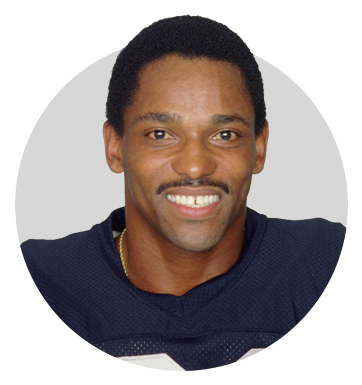 Raiders receiver Cliff Branch: "We pretty much dominated [the Chargers] in that era. We had won 18 straight against them from 1968 through 1977. Our biggest rival was Kansas City at that time, but San Diego had Dan Fouts and they got better every year under Dan Fouts. They started getting tough on offense and gave our defense trouble. But Kansas City was our rival."
Raiders receiver Cliff Branch: "We pretty much dominated [the Chargers] in that era. We had won 18 straight against them from 1968 through 1977. Our biggest rival was Kansas City at that time, but San Diego had Dan Fouts and they got better every year under Dan Fouts. They started getting tough on offense and gave our defense trouble. But Kansas City was our rival."
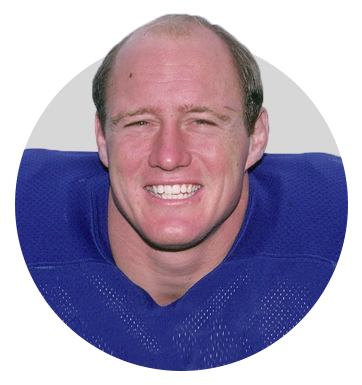 Chargers running back Hank Bauer, who scored two touchdowns in the game: "The big thing for us is we were an ascending team, a city and an organization, and the Raiders were already there. For us, the Raiders were the team we wanted to beat. And back in that era, guys didn't leave teams after four or five years. There was no free agency, so the nucleus stayed. So you got to know players on other teams, and that made that rivalry -- at least for us -- that was the one. We didn't like them; they didn't like us. They had that great defense and we had one of the best offenses in the league."
Chargers running back Hank Bauer, who scored two touchdowns in the game: "The big thing for us is we were an ascending team, a city and an organization, and the Raiders were already there. For us, the Raiders were the team we wanted to beat. And back in that era, guys didn't leave teams after four or five years. There was no free agency, so the nucleus stayed. So you got to know players on other teams, and that made that rivalry -- at least for us -- that was the one. We didn't like them; they didn't like us. They had that great defense and we had one of the best offenses in the league."
The Chargers had taken a 20-7 lead in the fourth quarter and still held a six-point edge as the game approached the final play.
 Branch: "We knew it was going to be the last play of the game. It had to be a pass going to the end zone. I would say we were trying to throw what we called '24 Special,' where both receivers would go up and then Casper would go up, too. Casper would go down the seam."
Branch: "We knew it was going to be the last play of the game. It had to be a pass going to the end zone. I would say we were trying to throw what we called '24 Special,' where both receivers would go up and then Casper would go up, too. Casper would go down the seam."
The playcall was for quarterback Ken Stabler to hit Branch or Morris Bradshaw on a short corner route, but there was an option.
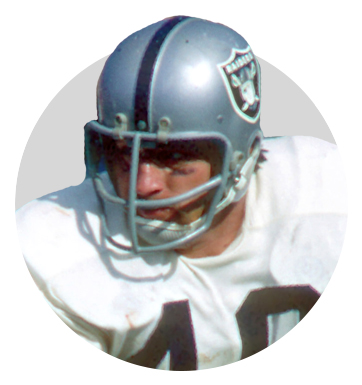 Raiders running back Pete Banaszak: "There was a flare-action tied in for the running backs. My duty was to check the linebacker and if he doesn't come, I go."
Raiders running back Pete Banaszak: "There was a flare-action tied in for the running backs. My duty was to check the linebacker and if he doesn't come, I go."
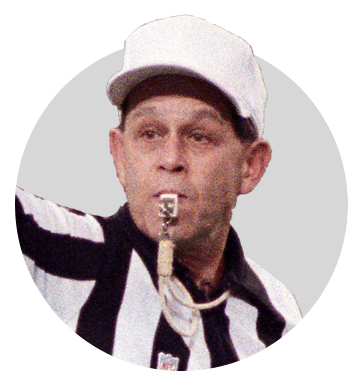 Jerry Markbreit, now 83, who worked four Super Bowls as a referee: "There were only 10 seconds left in the ballgame as I recall and I was very pleased because it was my first nationally televised game as a referee. On the play, Stabler dropped back to pass. I was in position right behind him."
Jerry Markbreit, now 83, who worked four Super Bowls as a referee: "There were only 10 seconds left in the ballgame as I recall and I was very pleased because it was my first nationally televised game as a referee. On the play, Stabler dropped back to pass. I was in position right behind him."
The play
The southpaw Stabler took the snap, backpedaled to his right and looked downfield. That's when Lowe entered the picture from Stabler's front side.
 Banaszak: "The guy was so damn quick. Like a cat. He came, so I stayed in and made a piss-poor block on him and he shoved me aside."
Banaszak: "The guy was so damn quick. Like a cat. He came, so I stayed in and made a piss-poor block on him and he shoved me aside."
The Chargers had Stabler wrapped up and nearly had him on the ground at the 23-yard line.
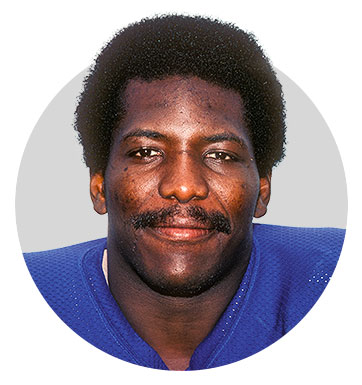 Chargers linebacker Woodrow Lowe to NFL Films: "I thought I was the hero of the game, to be honest. But it was just the opposite."
Chargers linebacker Woodrow Lowe to NFL Films: "I thought I was the hero of the game, to be honest. But it was just the opposite."
 Banaszak: "He had Snake [Stabler], my roommate at the time, he had his arm clamped down. I was yelling, 'Snake, Snake!' He saw me but he couldn't get his arm up to throw me the ball. Snake just threw it underhanded. Well, it was a fumble, so I was running like hell to get to the ball and I could hear a guy right behind me, snorting, closing in on me. I could hear him grunting behind me. He was fast, as fast as me, but I won that race. It was my screw-up that led to the play."
Banaszak: "He had Snake [Stabler], my roommate at the time, he had his arm clamped down. I was yelling, 'Snake, Snake!' He saw me but he couldn't get his arm up to throw me the ball. Snake just threw it underhanded. Well, it was a fumble, so I was running like hell to get to the ball and I could hear a guy right behind me, snorting, closing in on me. I could hear him grunting behind me. He was fast, as fast as me, but I won that race. It was my screw-up that led to the play."
Fred Dean hit Banaszak as he reached the ball at the line of scrimmage.
 Banaszak: "I knew what the hell was going on. I knew if I fell on it, the game is over. So I dove on it and threw it forward, not knowing Ghost [Casper] was near the goal line. I don't know what he was doing there, picking his nose? He wasn't supposed to be there."
Banaszak: "I knew what the hell was going on. I knew if I fell on it, the game is over. So I dove on it and threw it forward, not knowing Ghost [Casper] was near the goal line. I don't know what he was doing there, picking his nose? He wasn't supposed to be there."
Casper closed in on the bouncing ball at the 5-yard line, kicking it forward with his left foot, then kneeing it with his right knee as he lurched over for it, falling on it in the end zone. Banaszak said Madden had coached his players on how to react in such an unusual and fortuitous situation.
 Banaszak: "The referees don't know what the hell is going on. Just raise your hands and act like it's a touchdown and they'll call it a touchdown. God damn, John was right. If I didn't miss that block ... we took a lemon and made lemonade out of it."
Banaszak: "The referees don't know what the hell is going on. Just raise your hands and act like it's a touchdown and they'll call it a touchdown. God damn, John was right. If I didn't miss that block ... we took a lemon and made lemonade out of it."
 Markbreit: "Maybe it would have been nice if it was a clean fumble, but I'm happy with the way I ruled it. They're not going to change it after 40 years, and there's nothing anybody can do about it. All referees have these defining moments where they are questioned whether they are right or not right. I always relished plays like that. You can't be right all the time, and you're not wrong all the time."
Markbreit: "Maybe it would have been nice if it was a clean fumble, but I'm happy with the way I ruled it. They're not going to change it after 40 years, and there's nothing anybody can do about it. All referees have these defining moments where they are questioned whether they are right or not right. I always relished plays like that. You can't be right all the time, and you're not wrong all the time."
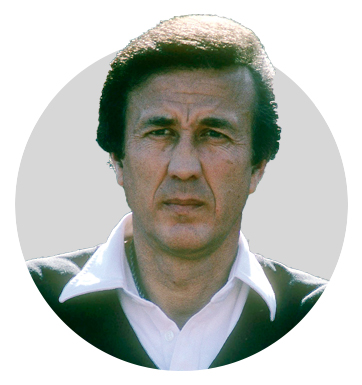 Raiders receivers coach Tom Flores: "Snake is getting sacked and I just thought, 'Oh s---, that's the game.' Then, 'Oh yeah. Oh wow. Oh my. God damn, we won.' The whole thing was in slow motion. I'll be damned."
Raiders receivers coach Tom Flores: "Snake is getting sacked and I just thought, 'Oh s---, that's the game.' Then, 'Oh yeah. Oh wow. Oh my. God damn, we won.' The whole thing was in slow motion. I'll be damned."
But even after Casper scored, the game was not quite over. The score was tied 20-20 with 0:00 on the clock.
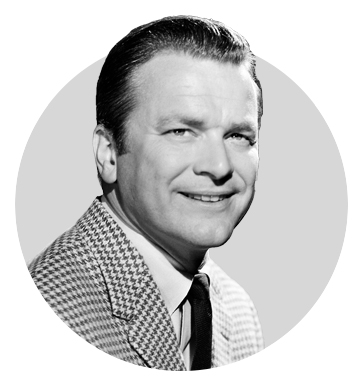 NBC play-by-play announcer Jim Simpson: "Errol Mann, time is out, if he makes [the PAT], the ballgame is over. The Raiders win it. If he doesn't make it, we go into overtime. The crowd, wondering how such a thing could happen, the kick is up. And good. And the Raiders have won it. Oakland wins it, 21-20, on an unbelievable play. A great defensive play turned into a touchdown for the Oakland Raiders. Well, Southern California, upset. Northern California, happy. And the rest of the country, amazed."
NBC play-by-play announcer Jim Simpson: "Errol Mann, time is out, if he makes [the PAT], the ballgame is over. The Raiders win it. If he doesn't make it, we go into overtime. The crowd, wondering how such a thing could happen, the kick is up. And good. And the Raiders have won it. Oakland wins it, 21-20, on an unbelievable play. A great defensive play turned into a touchdown for the Oakland Raiders. Well, Southern California, upset. Northern California, happy. And the rest of the country, amazed."
The reaction
After a touchdown was signaled, everyone went nuts.
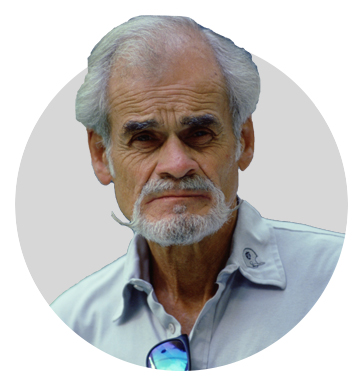 Raiders radio broadcaster Bill King: "The Oakland Raiders have scored on the most zany, unbelievable, absolutely impossible dream of a play. Madden is on the field, he wants to know if it's real. They said, 'Yes, get your big butt out of here.' He does. There's nothing real in the world anymore. This one will be relived, forever."
Raiders radio broadcaster Bill King: "The Oakland Raiders have scored on the most zany, unbelievable, absolutely impossible dream of a play. Madden is on the field, he wants to know if it's real. They said, 'Yes, get your big butt out of here.' He does. There's nothing real in the world anymore. This one will be relived, forever."
 Simpson: "You will not believe the replay when you see it. The ball was ruled, not a forward pass, [but] a fumble by Stabler, who should have given the ball up but it was kicked around and wound up in the end zone. There is no time left on the clock. They've still got to kick the extra point. It is 20-20. [Chargers coach Tommy] Prothro is coming out. You won't believe it."
Simpson: "You will not believe the replay when you see it. The ball was ruled, not a forward pass, [but] a fumble by Stabler, who should have given the ball up but it was kicked around and wound up in the end zone. There is no time left on the clock. They've still got to kick the extra point. It is 20-20. [Chargers coach Tommy] Prothro is coming out. You won't believe it."
 Markbreit: "The ball was kicked, batted, muffed and I guess 30 yards later it wound up in the end zone and my wing guys signaled touchdown, and I turned and signaled touchdown. It didn't seem like anything was wrong. [John] Madden came running out onto the field. He couldn't believe it, and somebody shooed him off the field."
Markbreit: "The ball was kicked, batted, muffed and I guess 30 yards later it wound up in the end zone and my wing guys signaled touchdown, and I turned and signaled touchdown. It didn't seem like anything was wrong. [John] Madden came running out onto the field. He couldn't believe it, and somebody shooed him off the field."
One of the most enduring images of the play is the famous San Diego Chicken falling over in disbelief.
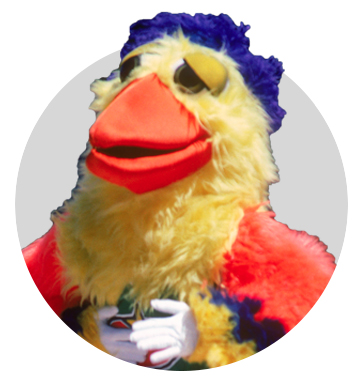 San Diego Chicken: "I was up there in the end zone where they kick the field goals, so I wanted to replicate passing out, to feel what the fans were feeling at that moment."
San Diego Chicken: "I was up there in the end zone where they kick the field goals, so I wanted to replicate passing out, to feel what the fans were feeling at that moment."
"He hated the Chargers. We all hated the Chargers. But Al, in that Brooklyn-Jewish accent of his, said, 'Those bastards, we got them.'" Raiders running back Pete Banaszak
The aftermath
Al Davis stalked the Raiders' victorious locker room.
 Banaszak: "He hated the Chargers. We all hated the Chargers. But Al, in that Brooklyn-Jewish accent of his, said, 'Those bastards, we got them.' We got robbed on the Rob Lytle fumble [in the previous AFC title game]. Finally, one went our way."
Banaszak: "He hated the Chargers. We all hated the Chargers. But Al, in that Brooklyn-Jewish accent of his, said, 'Those bastards, we got them.' We got robbed on the Rob Lytle fumble [in the previous AFC title game]. Finally, one went our way."
In another corner of the locker room, Stabler admitted to reporters he "fumbled on purpose." Twenty years and a week later, he addressed it with NFL Films.
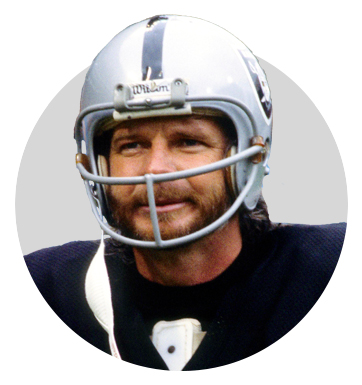 Ken Stabler, to NFL Films on Sept. 17, 1998: "So, it was just answering that same old question, over and over and over -- Was it a fumble? Did he fumble on purpose? Was it a legitimate fumble? And you go back and look at the films, over and over and over, and it was a fumble."
Ken Stabler, to NFL Films on Sept. 17, 1998: "So, it was just answering that same old question, over and over and over -- Was it a fumble? Did he fumble on purpose? Was it a legitimate fumble? And you go back and look at the films, over and over and over, and it was a fumble."
Almost 10 years later, Stabler was asked if he could convince the camera crew that he did not, in fact, flip the ball underhand. Stabler laughed.
 Stabler, to NFL Films on May 22, 2008: "No, I can't convince you of that, because I did. I mean, what else was I going to do with it? Throw it out there, shake the dice."
Stabler, to NFL Films on May 22, 2008: "No, I can't convince you of that, because I did. I mean, what else was I going to do with it? Throw it out there, shake the dice."
 Markbreit: "Of course, afterward in the locker room Stabler said he intentionally had fumbled the ball forward, which would have been an incompleted, forward pass under the rule. ... I have looked at that play a thousand times. He says he threw the ball forward; I say that he didn't. But who cares after 40 years."
Markbreit: "Of course, afterward in the locker room Stabler said he intentionally had fumbled the ball forward, which would have been an incompleted, forward pass under the rule. ... I have looked at that play a thousand times. He says he threw the ball forward; I say that he didn't. But who cares after 40 years."
 Branch: "Another rule was made up because of that play. The Holy Roller. Unbelievable. One of the classics, man."
Branch: "Another rule was made up because of that play. The Holy Roller. Unbelievable. One of the classics, man."
 Simpson: "Some people may say Banaszak shoveled the ball ... it looked as though Banaszak, as he got it, was hit, and that's why the ball went forward. Whatever. The ball was ruled by the officials down there as a touchdown for the Raiders and you'll see this on every highlight all week long. And in the nightmarish dreams of Tommy Prothro."
Simpson: "Some people may say Banaszak shoveled the ball ... it looked as though Banaszak, as he got it, was hit, and that's why the ball went forward. Whatever. The ball was ruled by the officials down there as a touchdown for the Raiders and you'll see this on every highlight all week long. And in the nightmarish dreams of Tommy Prothro."
 Chicken: "The Chargers were in first place heading into that game, and they lost first place and never recovered."
Chicken: "The Chargers were in first place heading into that game, and they lost first place and never recovered."
The defeat kept the Chargers out of the playoffs while the Raiders faded down the stretch, losing three of their last four games to go 9-7, missing the postseason for the first time since 1971, the second time since 1966. Madden retired after the 1978 season and was replaced by Flores, whose Raiders won Super Bowls in the 1980 and 1983 seasons.
 Banaszak: "I guarantee you, if we didn't win that game, Monday morning, John [Madden] would have chewed my ass. I bought myself a little time."
Banaszak: "I guarantee you, if we didn't win that game, Monday morning, John [Madden] would have chewed my ass. I bought myself a little time."
Forty years later, the game resonates with everyone involved.
 Bauer: "We thought we had it. To this day, have you ever seen an ending like that? It was disbelief, shock -- this didn't happen, this can't happen and will never happen again. What the f--- just happened, and this is bulls---. I still don't believe it."
Bauer: "We thought we had it. To this day, have you ever seen an ending like that? It was disbelief, shock -- this didn't happen, this can't happen and will never happen again. What the f--- just happened, and this is bulls---. I still don't believe it."
 Markbreit: "A number of years ago I was at a roast for Gale Sayers, and Casper was there. And he came over to me and hugged me. He said, 'You know I'm in the Hall of Fame.' And I said congratulations. And he said, 'You know why I'm there? Because of you. When I recovered that ball in the end zone, it made me famous.' ... That plays sticks out, and I remember it like it was yesterday."
Markbreit: "A number of years ago I was at a roast for Gale Sayers, and Casper was there. And he came over to me and hugged me. He said, 'You know I'm in the Hall of Fame.' And I said congratulations. And he said, 'You know why I'm there? Because of you. When I recovered that ball in the end zone, it made me famous.' ... That plays sticks out, and I remember it like it was yesterday."
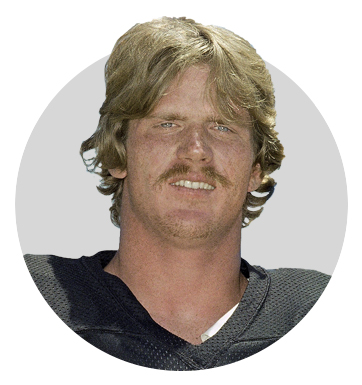 Casper: "I was just lucky to be there. That's what it comes down to."
Casper: "I was just lucky to be there. That's what it comes down to."


































